|
It’s almost a year since the world-shaping October 7 attacks on Israel by Hamas. But with Israel now launching a ground invasion of southern Lebanon, any hopes of the conflict easing after 12 months of death and destruction are dashed.
Israel’s move comes quickly after its forces killed Hezbollah leader Hassan Nasrallah over the weekend. The long-feared regional war appears to be eventuating.
As Amin Saikal writes, this isn’t the first time Israel has invaded its northern neighbour. It has a decades-long history of doing so, hoping to reorder the Middle East to serve its own interests.
But as Saikal points out, Israel hasn’t been successful in the past, and while circumstances change, there’s little reason to believe this time will be any different.
|

|
Erin Cooper-Douglas
Deputy Politics + Society Editor
|
|

Amin Saikal, Australian National University
With Israeli troops on the ground in Southern Lebanon, conflict in the Middle East escalates further. But Israel’s tried this before and hasn’t achieved its goals.
|

Michelle Grattan, University of Canberra
Displays of the Hezbollah flag have raised political passions and debate about the limits to free speech.
|

Dr Rico Merkert, University of Sydney
Could this deal deliver the boost to competition Australian air travellers need on international routes?
|
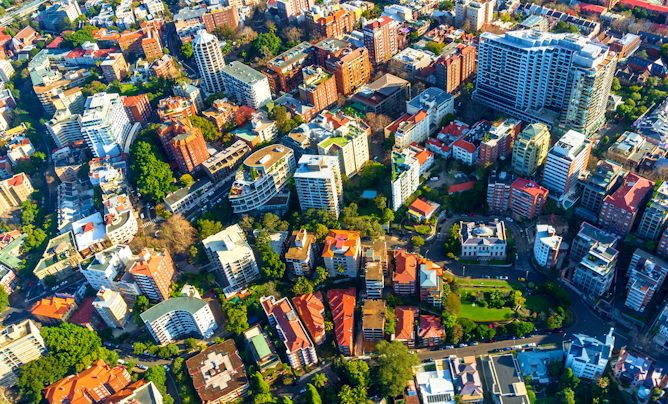
Peter Martin, Crawford School of Public Policy, Australian National University
My calculations suggest that if homeownership bounced back to 70% – where it was before a key tax change – an extra 430,000 homes would now be owned by the people living in them.
|
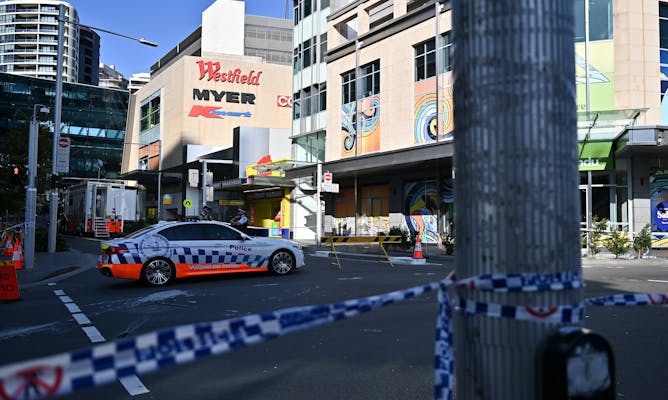
Vincent Hurley, Macquarie University; Alex Simpson, Macquarie University
Several recent stabbings in Australia have left many people nervous. But what does the data say about knife crime here?
|

Susan J. Méndez, The University of Melbourne
In many cases, patients are unable to shop around or make informed decisions about their care due to a lack of information about the true cost and quality of services.
|

Armin Alimardani, University of Wollongong
A recent study shows generative AI is not the academic powerhouse it is often made out to be.
|
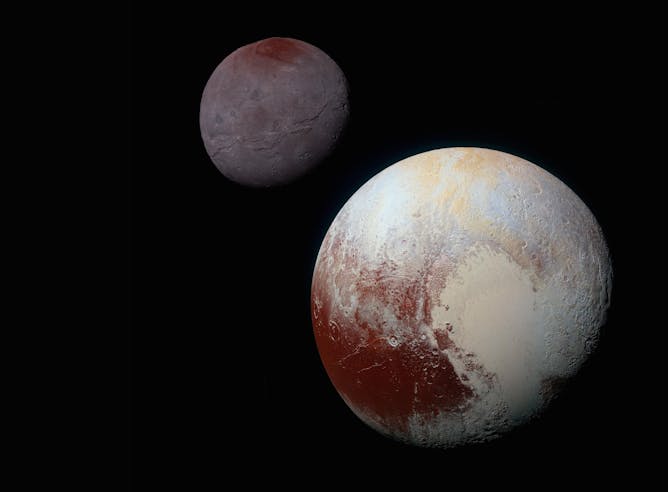
Brad E Tucker, Australian National University
The discovery can also give clues not only about Charon, but other objects out near Pluto.
|

Alexa Scarlata, RMIT University; Jessica Ford, University of Adelaide; Phoebe Hart, Queensland University of Technology; Rachel Williamson, University of Canterbury; Sharon Crozier-De Rosa, University of Wollongong; Stuart Richards, University of South Australia
Whether you’re after romance, documentary or mystery, this month’s selection is sure to help enhance your viewing experience.
|

Lisa M. Katerina Asher, University of Sydney; Drew Franklin, University of Auckland, Waipapa Taumata Rau
New Zealanders have less choice over their grocery shop than consumers in most developed countries. Breaking up the existing supermarket conglomerates would be a next logical step.
|
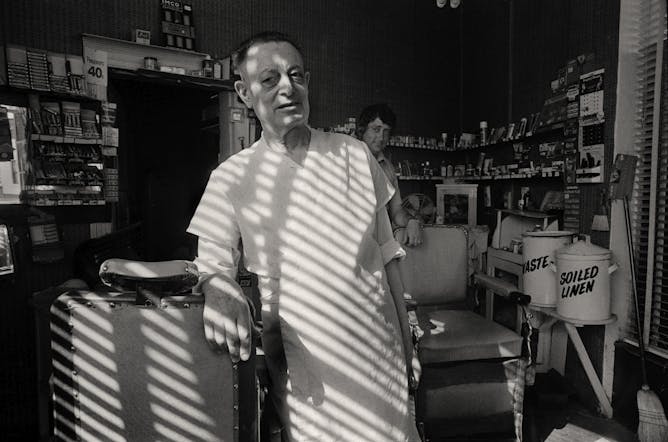
David Nichols, The University of Melbourne
This celebration of public life in Melbourne’s Fitzroy, in 1974, reveals a vigorous working-class suburb evolving into a countercultural marvel of cheap ‘fixer-uppers’ and bohemian share houses.
|
Politics + Society
|
-
Roger Patulny, Hong Kong Baptist University
A decade of data shows Australian men appear to focus their emotional energies primarily on their nuclear families and partners.
-
Michelle Grattan, University of Canberra
Josh Bornstein is a lawyer specialising in employment and labour relations law. His new book examines the problematic reach of the corporate hand into the private sphere. He joins us on the podcast.
|
|
Health + Medicine
|
-
Tessa Copp, University of Sydney; Emmalee Ford, University of Newcastle
Apps that track your menstrual cycle are part of a ‘femtech’ boom claiming to revolutionise women’s health. But many base predictions on an outdated idea of what’s normal.
|
|
Science + Technology
|
-
Sanghyub John Lee, University of Auckland, Waipapa Taumata Rau; Ho Seok Ahn, University of Auckland, Waipapa Taumata Rau; Leo Paas, University of Auckland, Waipapa Taumata Rau
A new model looked at more than 3.6 million sentences posted on X, with an 86% success rate in identifying the emotion being expressed.
|
|
Environment + Energy
|
-
David Angus Ness, University of South Australia
Sufficiency is a new approach to solving humanity’s consumption problems. It’s about using less, ensuring wellbeing for all humans, and staying within planetary boundaries.
|
|
Education
|
-
Amanda Bourgeois, The University of Queensland; Annemaree Carroll, The University of Queensland
Young people are growing up in an era where – thanks to technology – boredom is rare. This can be challenging for classroom teachers, who want to encourage their students to reflect and contemplate.
|
|
Arts + Culture
|
-
Marian Makkar, RMIT University; Amanda Spry, RMIT University
Gen Z consumers care about the environment yet they are tempted by ultra-fast fashion. What explains this cognitive dissonance?
|
|
Books + Ideas
|
-
Per Henningsgaard, Curtin University
Juice is a radical departure that asks readers to think differently about the future.
|
|
Business + Economy
|
-
Michelle Grattan, University of Canberra
A push to overhaul laws to stamp out land banking is part of a Government bid to crack down on anti-competitive and unconscionable conduct by supermarkets.
|
|
| |
|
|
|
The Conversation AU/NZ
Melbourne VIC, Australia
•
Full Time
|

|
|
University of Wollongong
Wollongong NSW, Australia
•
Full Time
|

|
|
Royal Australian and New Zealand College of Ophthalmologists
Anywhere
•
Casual
|

|
|
|
|
| |
| |
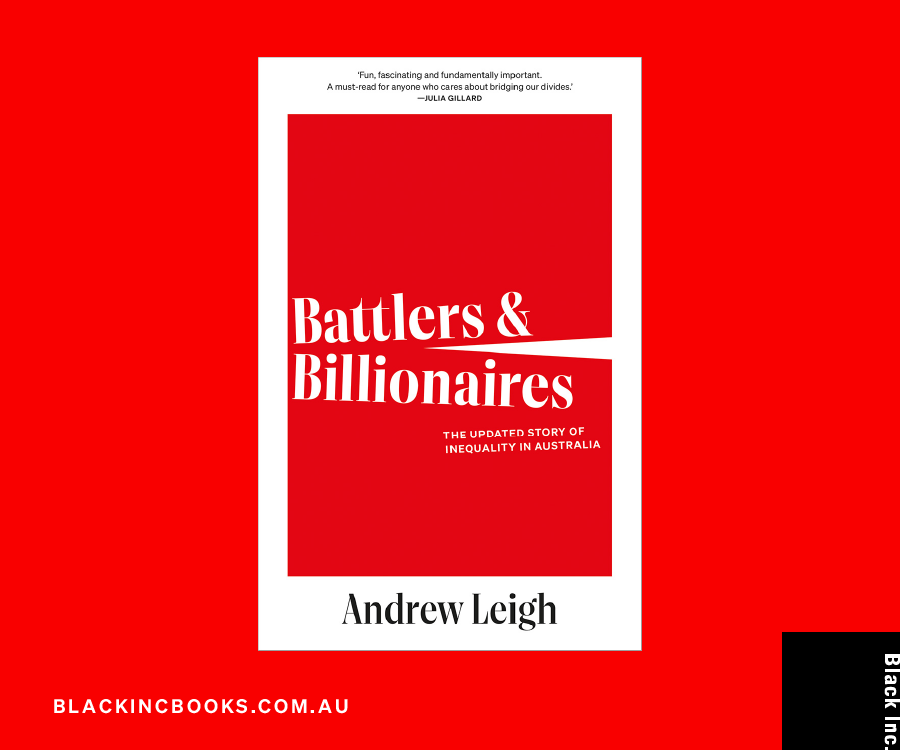
|
| |
| |
| |
Featured Events, Courses & Podcasts
|
View all
|
|
|
|

|
8 - 29 November 2024
•
Sydney
|

|
11 - 15 November 2024
•
Perth
|

|
12 - 13 November 2024
•
MELBOURNE
|
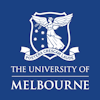
|
|
|
|
| |
| |
| |
| |
| |
|
|